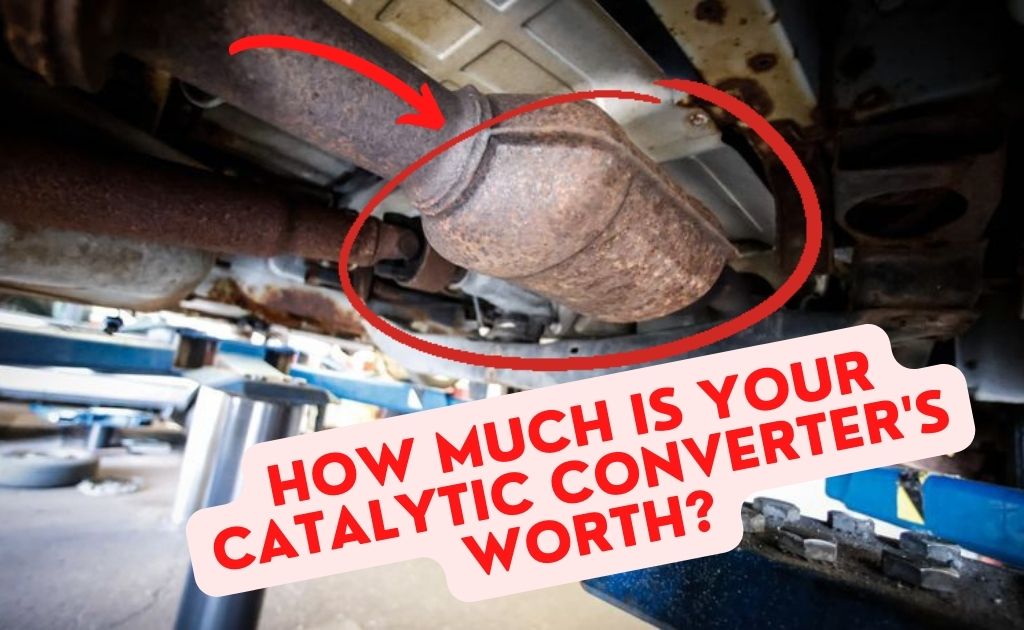How Much To Replace A Catalytic Converter

The catalytic converter, that unassuming canister nestled within your exhaust system, plays a crucial role in reducing harmful emissions. It's a mandatory component, and a malfunctioning one can lead to failed emissions tests, reduced fuel economy, and, ultimately, a hefty repair bill. So, how much will replacing a catalytic converter set you back? The answer, as with most automotive repairs, is "it depends." Let's delve into the factors that influence the cost and explore how to navigate this potentially expensive repair.
Factors Influencing Catalytic Converter Replacement Cost
Several elements contribute to the final cost of replacing a catalytic converter. Understanding these factors will allow you to better anticipate the expense and potentially find cost-saving alternatives.
- Vehicle Make and Model: This is perhaps the most significant cost driver. Luxury vehicles and high-performance cars often have more expensive, complex catalytic converters due to higher precious metal content (platinum, palladium, and rhodium). Similarly, vehicles with dual exhaust systems will naturally require two converters, doubling the cost.
- Converter Type: There are essentially two main types: OEM (Original Equipment Manufacturer) and aftermarket. OEM converters are made by the vehicle manufacturer or an approved supplier and are generally the most expensive, guaranteeing exact fit and performance. Aftermarket converters are produced by third-party manufacturers. While often cheaper, quality can vary significantly. Some aftermarket converters may not meet strict emissions standards, particularly in states like California that have adopted CARB (California Air Resources Board) regulations.
- Labor Costs: Labor rates vary widely depending on your location and the type of repair shop. Dealerships typically charge higher labor rates than independent shops. The complexity of the job also influences labor costs. A straightforward bolt-on replacement will be less expensive than one requiring welding or extensive exhaust system disassembly.
- Location: Where you are located significantly impacts the price due to varying labor rates and parts availability. Areas with stricter emissions regulations, like California, often have higher parts costs due to the CARB-compliant requirements.
- Underlying Issues: Sometimes, a failed catalytic converter is a symptom of a larger problem. For instance, if your engine is burning oil or running excessively rich, it can overwhelm and damage the converter. Addressing these underlying issues before replacing the converter is crucial to prevent premature failure of the new unit. Neglecting these issues can result in the replacement converter failing quickly, costing you even more money in the long run.
Cost Breakdown: Parts and Labor
Let's break down the estimated costs for parts and labor:
- Parts (Catalytic Converter): An aftermarket converter can range from $200 to $800 or more. An OEM converter can easily cost $800 to $2000 or even higher for certain vehicles. California-compliant (CARB) converters are typically more expensive than federal-compliant converters.
- Labor: Labor costs typically range from $100 to $400, depending on the complexity of the job and the shop's hourly rate. Simple bolt-on replacements will be on the lower end of the range, while more involved jobs (requiring welding, exhaust system repairs, or access issues) will be more expensive.
Therefore, the total cost to replace a catalytic converter can range from approximately $300 to well over $2400, or even more for high-end vehicles with OEM converters. A good rule of thumb is to get quotes from multiple repair shops to compare prices and ensure you are getting a fair deal.
Cost-Saving Tips and Considerations
While replacing a catalytic converter can be expensive, there are ways to potentially mitigate the cost:
- Obtain Multiple Quotes: Always get estimates from several repair shops, including dealerships and independent mechanics. This allows you to compare prices and services.
- Consider Aftermarket Options (Carefully): If your vehicle doesn't require a CARB-compliant converter, a quality aftermarket option can save you money. However, research the brand and ensure it meets emissions standards in your area. Read reviews and ask for recommendations from trusted mechanics.
- Address Underlying Issues: As mentioned earlier, addressing any underlying engine problems is crucial to prevent premature converter failure. A diagnostic check can identify these issues.
- Check for Warranties: Some catalytic converters come with warranties. Check the warranty information before purchasing a replacement.
- Consider Used or Recycled Converters (With Caution): While used converters can be significantly cheaper, they may not meet emissions standards and may have a limited lifespan. Proceed with caution and only consider this option from reputable sources. Note that removing a functioning catalytic converter is illegal.
Replacing a catalytic converter is rarely a pleasant experience for your wallet. However, understanding the factors that influence the cost and exploring your options can help you make an informed decision and potentially save money on this necessary repair. Remember to prioritize quality and ensure the replacement converter meets the emissions standards in your state to avoid future problems.
